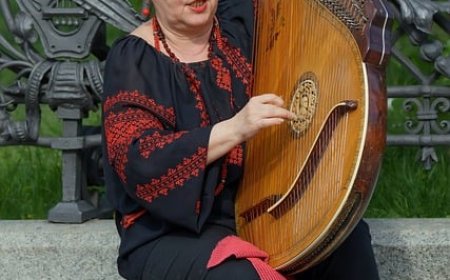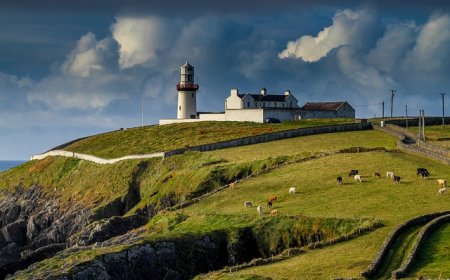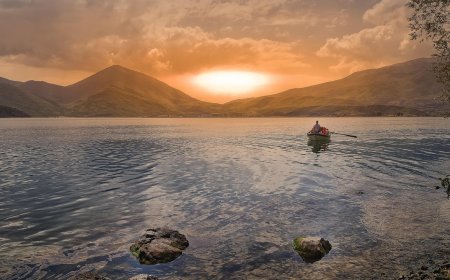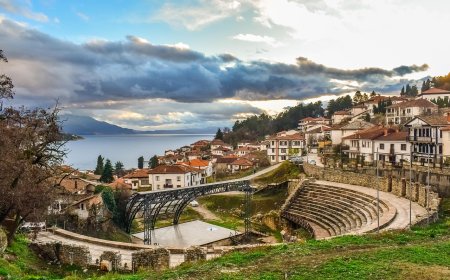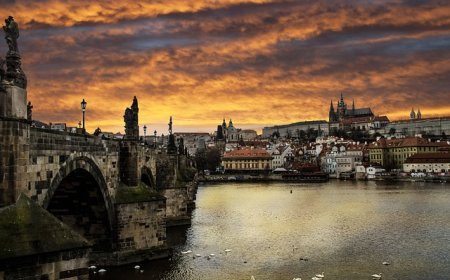Greece: History, Culture, and Geography for Students
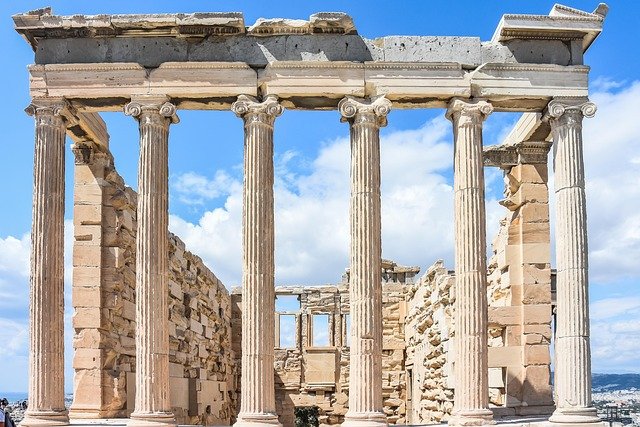
🇬🇷 Greece: The Birthplace of Democracy, Myth, and Civilization
🗺 Introduction
Greece is one of the oldest countries in the world, famous for its ancient civilization, beautiful islands, and incredible mythology. Located in southeastern Europe, Greece has profoundly influenced democracy, the Olympics, theater, art, and science.
In this article, you’ll explore Greece’s geography, culture, and history. You’ll meet famous philosophers and gods, discover traditional foods and festivals, and learn why Greece remains a fascinating place to study.
🌍 Geography and Location
Greece sits at the southern tip of the Balkan Peninsula, bordered by Albania, North Macedonia, Bulgaria, and Turkey, and surrounded by the Aegean Sea, Ionian Sea, and Mediterranean Sea.
About 80% of Greece is mountainous, with Mount Olympus—mythical home of the gods—its highest peak. Greece also has over 6,000 islands (around 200 inhabited), including Crete, Rhodes, Santorini, and Mykonos.
🏙 Cities and Regions
Athens, the capital, is over 3,000 years old and known as the birthplace of democracy. Its skyline is dominated by the Acropolis and the Parthenon, alongside modern museums and neighborhoods.
Thessaloniki, in northern Greece, is the country’s second-largest city, celebrated for its festivals and multicultural heritage. Other key centers include Patras, Heraklion (Crete), and Rhodes.
👨👩👧👦 People, Language, and Culture
Greece’s population is about 10.5 million. The official language is Greek, one of the world’s oldest written languages. Many English words—like biology, geography, and astronomy—originate from Greek.
Most Greeks follow the Greek Orthodox Church, and family ties are strong across generations. Greek hospitality (“philoxenia”) shines through communal meals, music, and dance.
🍽 Greek Food and Traditions
Greek cuisine centers on olive oil, fresh vegetables, fish, lamb, and herbs. Meals are social events, savored slowly with friends and family.
- Moussaka: Layers of eggplant, meat, and béchamel sauce
- Souvlaki: Grilled meat skewers with pita
- Greek salad: Tomatoes, cucumbers, olives, onions, and feta
- Spanakopita: Spinach and cheese in phyllo pastry
- Baklava: Nuts and honey between flaky pastry
Major celebrations include Easter processions and village panigiria, with feasts, music, and dancing.
🏛 History of Ancient and Modern Greece
Ancient Greece (c. 800 BCE) pioneered democracy, philosophy, theater, and the Olympic Games. Philosophers like Socrates, Plato, and Aristotle shaped Western thought.
Later, Greece became part of the Roman, Byzantine, and Ottoman empires before gaining independence in the 1800s. Modern Greece is a parliamentary republic and EU member, balancing its heritage with contemporary life.
🌿 Nature and Environment
From snowy mountain trails to coastal beaches, Greece’s varied landscapes host wildlife such as foxes, deer, sea turtles, and dolphins. Conservation efforts protect national parks and marine ecosystems.
🧠 Why Greece Matters
Greece’s legacy—democracy, citizenship, philosophy, and mythology—continues to inspire world culture, literature, and governance. Its islands and archaeological sites draw millions of visitors who experience a living link between past and present.
📚 Vocabulary List
| Word | Definition |
|---|---|
| Democracy | A government ruled by the people through voting |
| Mythology | Stories about gods, heroes, and the natural world |
| Orthodox | A branch of Christianity dominant in Greece |
| Philosopher | Someone who studies ideas about life and knowledge |
| Olympics | Ancient Greek athletic competitions still held today |
| Parthenon | Temple on the Athens Acropolis dedicated to Athena |
| Souvlaki | Grilled meat skewers, a popular street food |
| Panigiria | Local village festivals with food, music, and dance |
✨ Fun Facts About Greece
Greece has more archaeological museums than any other country in the world.
The Greek alphabet is over 2,500 years old and is still used today.
Greece has more than 13,000 kilometers (8,000 miles) of coastline.
Ancient Greeks believed that Mount Olympus was the home of the gods.
The first Olympic Games were held in Greece more than 2,700 years ago.
👧🧒 Kid-Friendly Summary
Greece is a country full of history, sunshine, and fun stories. It’s where the Olympics and democracy began, and it’s filled with ancient temples and blue seas. People in Greece speak Greek, dance together at festivals, and eat tasty food like souvlaki and baklava. It’s a land of myths, mountains, and magic!
🧠 Interactive Quiz: How Well Do You Know Greece?
1. What is the capital of Greece?
A) Athens
B) Sparta
C) Rome
D) Thessaloniki
2. What mountain was believed to be the home of the gods?
A) Mount Everest
B) Mount Teide
C) Mount Olympus
D) Mount Parnassus
3. What kind of government began in ancient Greece?
A) Monarchy
B) Democracy
C) Dictatorship
D) Empire
4. What is the name of a popular Greek dish with meat on a stick?
A) Moussaka
B) Spanakopita
C) Souvlaki
D) Pizza
5. What sporting event began in Greece over 2,700 years ago?
A) World Cup
B) Olympic Games
C) Super Bowl
D) Tour de France






























